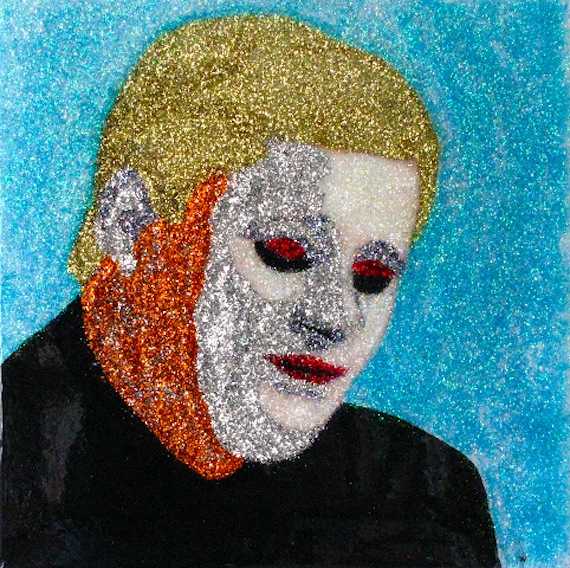When I ponder our prime minister’s mental state nowadays, my mind spontaneously offers up a rude phrase about the things bats leave behind in belfries.
Prime Minister Stephen Harper has got a national election looming; he’s none too popular in certain essential parts of the country and not quite popular enough just now in others; Disgraced Canadian Senator Mike Duffy is facing a criminal trial and apparently wants the PM on the witness stand; it’s attracting public notice that his government uses tax policy as an ideological bludgeon; and the economy is easing toward the crapper everywhere except out here in Alberta, where our disproportionate economic success depends on laying waste to the environment.
So it should be easy for everyone to understand why he might call up the Globe and Mail and ask for space for a little heart-to-heart with the nation.
And what does he want to talk about? Vladimir Putin?
I’m not making this up, people! Click here and read it for yourself. The world’s problems? They’re all caused by Putin! Who knew?
I don’t know about you, but I always took a certain comfort in the notion Harper was a cynical master of manipulation, a politician for whom no wedge was too harmful or divisive to be shunned. This is bad, of course, and both immoral and dangerous, but it contains the comforting kernel of thought that no one as bright as Harper is could actually fail to see the glaring contradictions in the stuff he says. This always offered the faint hope he didn’t actually believe everything he was saying, and therefore might be philosophical if voters indicated they disagreed.
Naturally one hoped his petulant and furious reaction to the complicated situation unfolding in Ukraine reflected only the availability of another potential wedge issue here in Canada. That is, a chance to capture the Ukrainian-Canadian vote. Perhaps, one hoped, it didn’t reveal his actual thoughts on the unstable and dangerous crisis in which there are plenty of nasty players and victims on all sides.
However, after reading Harper’s little magnum opus about how Putin is all bad, and the current Ukrainian government — neo-Nazi enforcers, foreign fascist mercenaries, the illegal coup that brought it to power and everything else — is nothing but good, I’m not so sure.
His diatribe doesn’t seem to bear a precise relationship to the facts on the ground in the borderlands of Russia, let us say, but it did sound like something the man actually believes, and may well have written himself!
The most astonishing part, though, is what Sherlock Holmes might have called the curious incident of the dog in the night-time. That is, the glaring omission in Harper’s 866-word diatribe of any mention of what’s happening in the other great conflict playing out on our planet at this moment. To wit: Israel’s assault on Gaza.
About the first, he has everything to say. About the second, nothing. That is the curious incident — and a remarkable inconsistency given the seeming similarities of the two tragedies, and the fact many innocents are suffering and dying because of both.
According to Harper’s fulminations, by looking out for its undeniable national interest and making noises about protecting the large Russian community in Eastern Ukraine, Putin’s government is aggressively and recklessly “threatening the peace and security of eastern and central Europe.” He must be punished, he must be punished now, and Canada is resolved to punish him!
Surely, Israel too views its massive air and artillery bombardment of Gaza in response to missiles fired from that tiny enclave as being in its undeniable national interest and protecting its people everywhere, and not necessarily just passport holders. Moreover, all political parties in the Canadian government apparently agree that, as Harper’s PMO put it a week ago, “Canada remains steadfastly in support of Israel’s right to defend itself as long as the terrorist attacks by Hamas continue.”
The ferocity of Israel’s response, however, apparently leaves Harper utterly unmoved.
Harper’s sermon on Ukraine showed him to be particularly furious that the Russian government, “remains in violation of international law for its illegal occupation of Crimea.”
Again, it’s hard here not to see the parallel to the situation in the Middle East. Whatever you may think of international law and the United Nations — apparently not much, if you’re Harper’s foreign affairs minister — it is undeniable that Israel has for many years defied both. By contrast, this in no way troubles the current Canadian government.
So why is an illegal occupation of Russian speaking Crimea by Eastern Europe’s greatest military power an outrage, while an illegal and much more violent occupation by the Middle East’s predominant military power so perfectly reasonable in the eyes of the PM that it doesn’t even require his or our notice?
Look, I understand that there are persuasive arguments to be made that the situations are quite different. What’s bizarre is that in the face of such a seeming inconsistency the PM feels no need to make them — or, indeed, that he chose this topic at all for his little fireside chat with the Globe’s reliably Conservative readership.
Harper is focused on one thing, and one thing only: “Mr. Putin’s Russia increasingly autocratic at home and dangerously aggressive abroad.” Rather like Harper’s Canada, one is tempted to note, in that regard.
OK, when you’re assailed politically on the home front, it makes a sort of irresponsible sense to try to unite the country around a foreign enemy. But who believes now that Harper hasn’t started to believe everything he says?
Truly, one has to wonder if the cognitive dissonance of it all is going to make the man spontaneously combust! Or, if there’s no danger of that, then if there really is something other than bells in that belfry of his.
This post also appears on David Climenhaga’s blog, Alberta Diary.



